
Keeping your customers happy and satisfied is the essence of good customer support. However, the pandemic has reshaped customer expectations like never before.
The unprecedented outbreak resulted in massive escalated calls across industries. Take a look at these numbers from the Harvard Business Review article in 2020:
- The number of “difficult” calls doubled within two weeks during the onset of the pandemic.
- Financial crisis-related calls — one of the most challenging calls to handle — saw a 2.5 times increase in one week.
- Call hold times rose 34% in some companies, and escalated calls increased to 68%.
Consequently, escalation calls became intricate, with customers demanding more emotional and empathetic attention. Companies having difficulty adjusting to the newly elevated distraught calls might consider investing in outsourced customer service escalation support representatives.
What Is Escalation in Customer Support?
Not all customer issues can be settled by the first-line agents. When customers are frustrated or angry, a more senior representative may be needed to resolve the issue.
When an agent finally refers the callers to the higher-ups, that’s what you call an “escalation.” Escalation usually occurs in one of these approaches.
- Hierarchical Escalation: The call is transferred to a superior support staff upon the caller’s request. Sometimes, it could be because the representative needs more authority to perform specific tasks.
- Automated Escalation: Specific service level agreements (SLAs) stipulate the time required for a customer support staff to resolve a query. So, if an SLA requires the team to resolve a customer ticket within a specified time, the call will be escalated if the resolution doesn’t occur within that period.
- Conflict Escalation: The caller and customer representatives are struggling to see eye-to-eye on a particular issue. So, the client usually requests to pass the call to a more senior agent to reach a resolution.
Again, it’s clear that frustration or dissatisfaction with the client’s support is what usually prompts escalation. But here’s one thing that you should keep in mind:
- 39% of customers are less patient than they were during pre-pandemic.
- For web chat, 10% are willing to wait up to one minute, and two minutes for the other 30%.
- 72% want immediate service.
Your current goal should be to rectify customer complaints quickly and efficiently to alleviate their unnecessary worries. One way to do that is by adopting an effective escalation management process. When done correctly, your company will be rewarded with better customer loyalty and retention
Escalation Management Process: What Is It and Why Is It Important?
Call escalations can be beneficial for your company when executed properly. Otherwise, it could have the opposite effect.
Companies should establish a standard procedure and workflow for escalating and rerouting client calls or tickets. With a system in place, client concerns can be assigned to the right individuals with the needed niche skills and can be resolved in the shortest time possible.
One customer report indicates that a great deal of client issues are left unresolved after one call:
- 65% had to follow up more than once to resolve their issues.
- 25% needed to call a company three or more times to obtain answers.
Companies should take those stats as a learning lesson to treat escalation management seriously and with due diligence. Customer satisfaction could be on the line if reps fail to provide the best remedy for customer complaints.
A company’s escalation management team should be able to facilitate the escalation process correctly. Understandably, some customer agents haven’t reached a certain level of proficiency to iron out inevitable complaints. But transferring the line to a more experienced support staff could go a long way in enhancing customer experience.
Having an escalation process in place can also support teams in decreasing their resolution time. With established workflows and decision paths, representatives can quickly determine who is best equipped to resolve a customer request.
In turn, you’re killing two birds with one stone: smoothing out friction for the customer and leveling up your reps’ ability to manage more phone calls or web chats within a specified time.
Who Is a Happy Customer?

Customer satisfaction and customer happiness are different.
Customer satisfaction means your product, service, and interaction met client expectations — but don’t exceed them. There’s one problem with this: Your customers aren’t emotionally invested in your brand. So, they’d more likely perceive your brand as replaceable.
As a company, you want brand loyalty — and that’s what striving for “customer happiness” accomplishes. Your role is to shape your clients’ experiences into meaningful ones. Once they go beyond mere satisfaction, they’re less likely to defect to your competitors in the long run.
If you have happy customers, they are your active advocates. They will refer you to their network of friends using positive word of mouth.
Outsourcing a team of customer service escalation reps adds another layer to your client support, thereby increasing your chances of making your customers happy.
How Customer Service Escalation Support Representatives Handle Unhappy Customers
#1: Pacifying Angry Customers
Nearly all businesses deal with angry customers — justified or not. Even if the majority of your buyers are happy customers, there’ll always be some outliers.
Emotional outbursts are typical among clients. Here are some stats:
- 14% raised their voices when reporting their complaints.
- 19% used foul language against a customer support staff.
- 61% put down the phone mid-conversation out of anger.
How you respond to these irate clients will help shape your brand reputation.
The “service recovery paradox,” or SRP, is a phenomenon that transforms frustrated customers into happy ones after a successful recovery. Research suggests that initially disappointed customers can experience higher satisfaction than customers who call for usual concerns.
Moreover, 74% of consumers will go easy on a company for its mistakes after one outstanding service.
Recovering from a heated argument is what escalation support reps are good at. Once calls are transferred to them, they know how to pick them up. It’s as if they attended to the call initially.
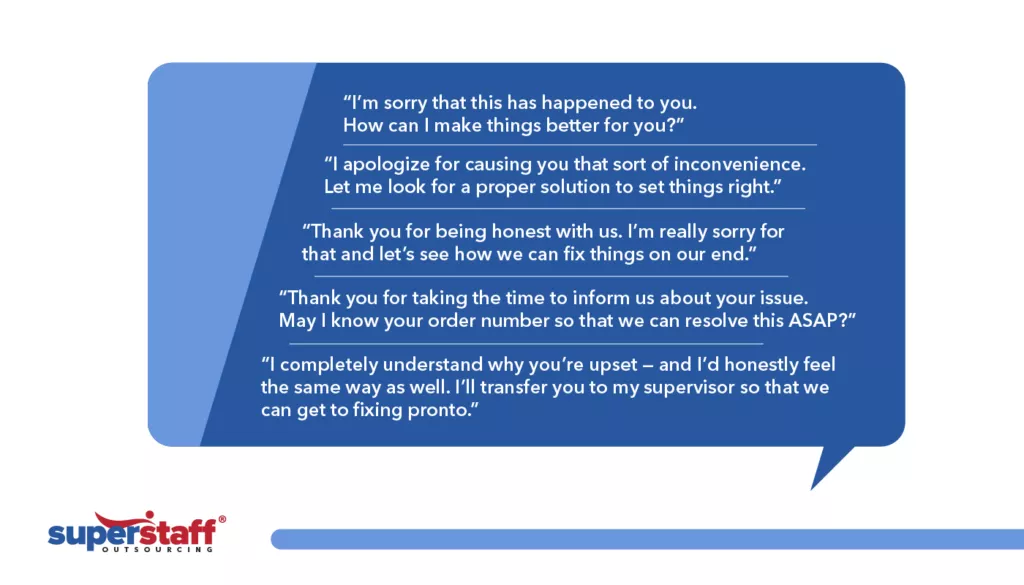
Customer service escalation support addresses disgruntled customers using the excellent soft skills they have perfected in their years in the industry.
Since they’re well-trained at pacifying irate callers, their expertise and outstanding customer service skills can help turn once-angry customers into happy and satisfied ones.
#2: Asking Only the Right Questions for High-Priority Cases
Generally, all questions should be answered and solved promptly. But resolving customer tickets is a challenging fix. That’s why companies should categorize each ticket according to its priorities and scale of urgency:
- Low priority or Tier 3: Questions in this category are general and don’t require an instant response.
- Medium priority or Tier 2: The questions involve troubleshooting or product bugs that require a quick response.
- High priority or Tier 1: The tickets require immediate assistance since the issues they experience inhibit them from using the products.
Priority escalation is when an urgent query requires support from a higher level authority, whether a more skilled or senior customer agent. What the first line of reps does is to identify what the high-priority or first-priority issues are.
One example of a high-priority or first-priority issue is a fraud case. Any fraud should be treated with utmost sensitivity and care.
Since fraud involves monetary losses, it’s crucial that customer reps immediately get down to the right questions and cut the small talk.
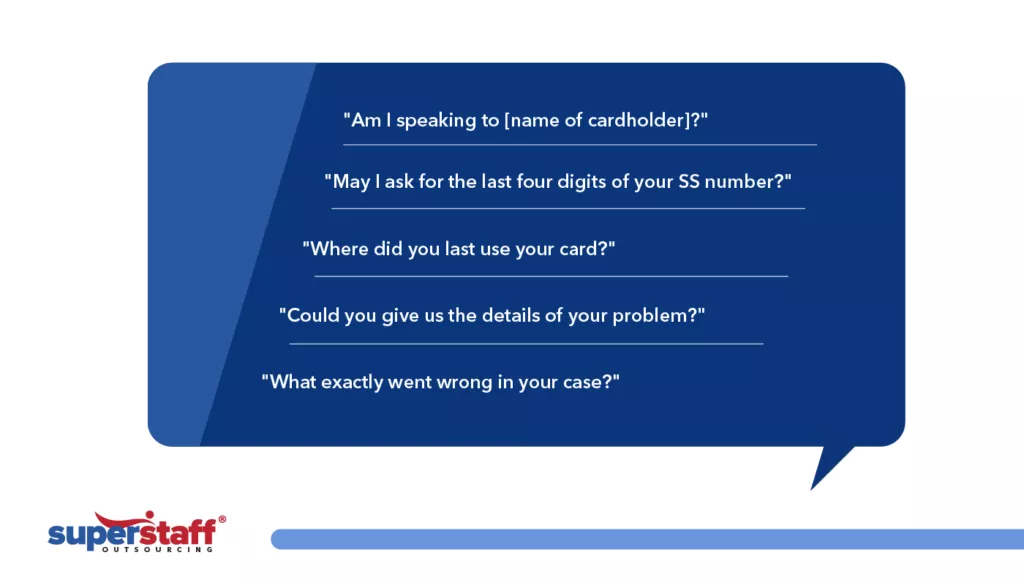
A 2022 Harvard Business Review article explained that asking the right questions can raise decision quality, deliver better work, and alleviate uncertain risks. So in escalated cases, a customer rep can also apply Socratic questioning to get to the crux of the matter.
Thus, outsourcing a team of competent escalation support staff can help your company ask probing questions and respond to your customer complaints heads on. They aim to cut down unnecessary time when interacting with fraud victims.
#3: Transferring Calls to a Team with Niche Expertise
Please note that 70% of consumers want their agents to understand the context of their concerns so they avoid repeating themselves.
If the issues are beyond the representative’s expertise, such calls or concerns will be delegated to the right support team, which is more familiar with the complaint. Usually, the group comprises professionals with the required skillsets to meet the customer’s needs.
This type of call is also known as “functional escalation.”
When a specialist takes care of a client complaint, it grants the clients a more personalized customer experience as their issue is tackled on an in-depth level. Let’s take a look at some reports on the personalized customer experience:
- 62% of consumers opt for customized recommendations over general ones.
- 60% know when they obtain customized advice and find them helpful.
Not everyone can be a jack of all trades, and that’s okay. Some concerns require a more consistent level of knowledge and expertise.
Transferring calls doesn’t mean the first line of representatives isn’t dependable. In fact, it takes good decision-making skills to make that transfer or not.
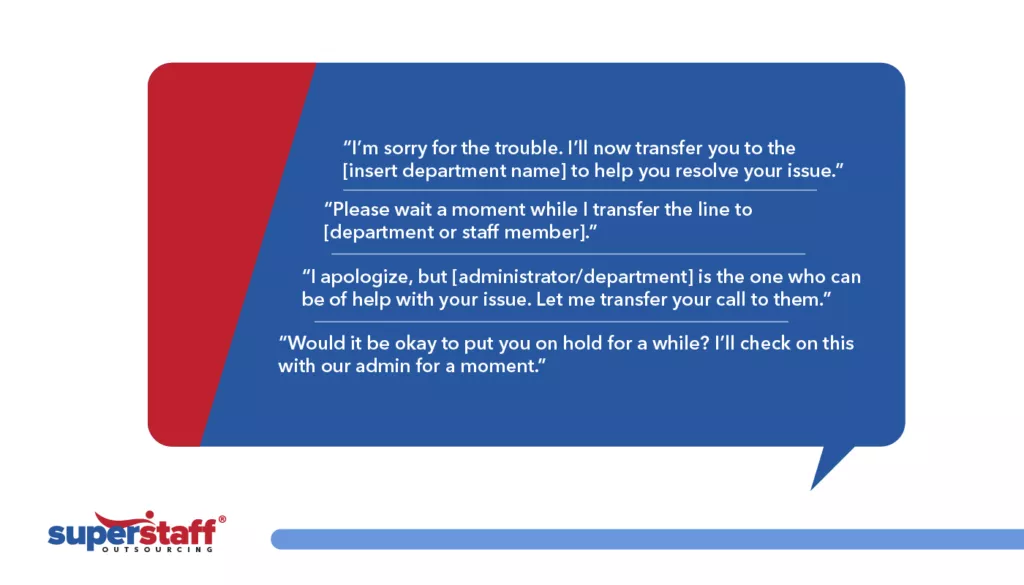
#4 Apologizing Gracefully for Order Mixups or Failed Deliveries
More people have been gravitating toward online purchases since the pandemic. But with higher volumes of orders, delivery failures are inevitable, especially for e-commerce businesses. Take a look at these numbers:
- In 2022, the average cost per failed delivery hit around $17.2 in the U.S.
- 23% haven’t purchased from their respective companies.
- 21% lost faith in their retailers.
- 16% told their friends and families not to buy from retailers who failed deliveries.
Rectifying delivery mistakes with full accountability is where escalation representatives become crucial.
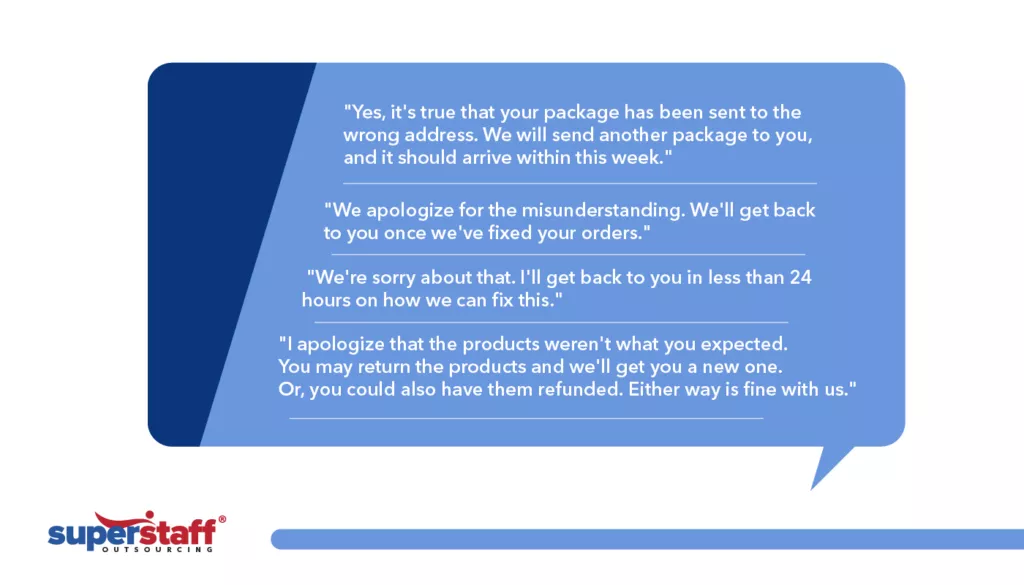
#5: Dealing With Grieving Customers
Earlier, we discussed the main reason why call escalations skyrocketed during the pandemic: Many people felt increased anxiety and uncertainty.
Understand that grieving customers can quickly feel frustrated. So, it could aggravate their circumstances when reps aren’t equipped with the proper soft skills such as active listening, problem-solving, and adaptability.
While it’s true that sales and relationship building are crucial aspects of the business, brands should never neglect the human side during difficult times.
A 2020 study finds that 9 in 10 Americans still think companies should empathize with their customers through actions — not just words alone. At the same time, 86% believe customer loyalty is cultivated by displaying empathy to consumers.
More often than not, emotion can be the primary driver when making purchase decisions.
Almost 50% of customers prefer customer reps to be empathetic with their concerns. Ideally, customer agents should listen to their clients and make them feel heard instead of immediately jumping to resolutions.
If your industry deals with many emotional callers (for example, healthcare or insurance or any sector that may deal with sensitive, sometimes life-and-death situations), then having an escalation team ready to take on calls is essential. Again, one strong quality of escalation representatives is knowing to say the right thing at the right time.
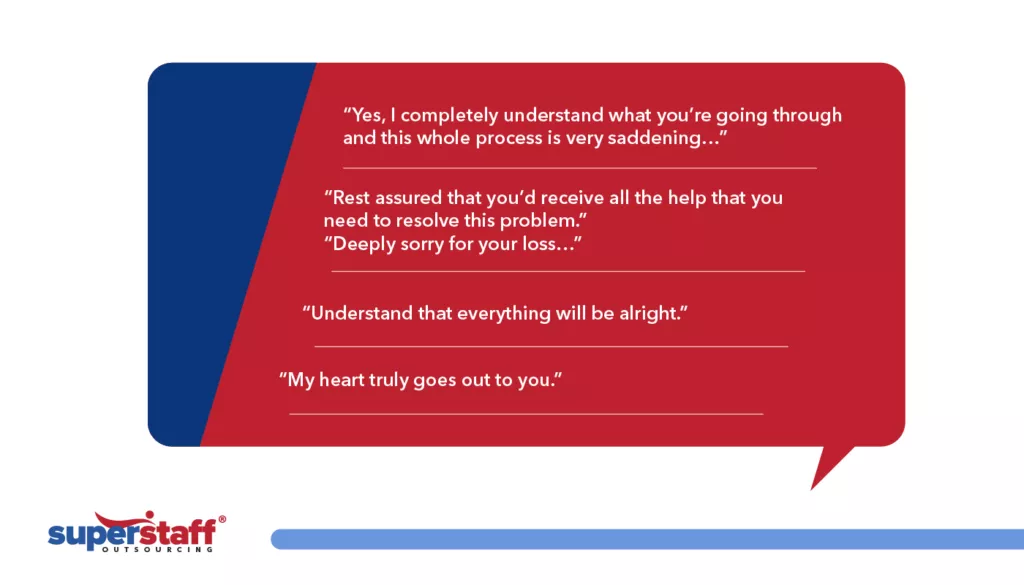
Outsourcing Customer Service Escalation Support Representatives in the Philippines
Most companies are no strangers to call escalations. That’s why businesses should make implementing an escalation management process a priority, helping you handle calls effectively and eventually can help you keep happy customers.
One way to strengthen your call escalation process is by onboarding a team of reliable customer service escalation specialists. They’re equipped with the excellent soft skills crucial in dealing with escalations quickly yet gracefully and genuinely. Contact us now, and allow us to build you this ever-dependable team.





